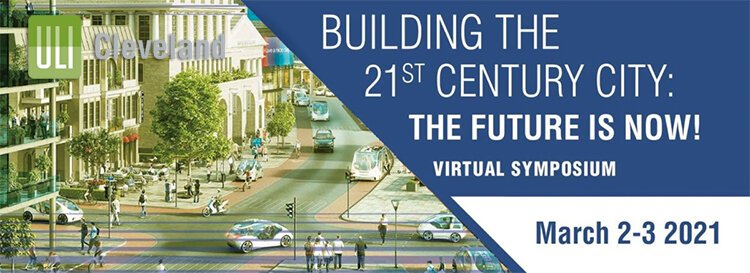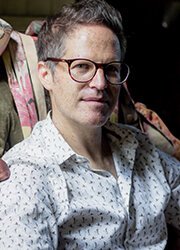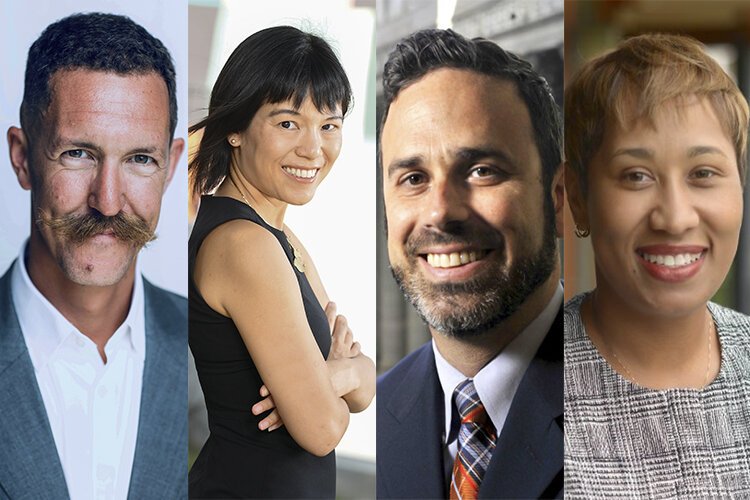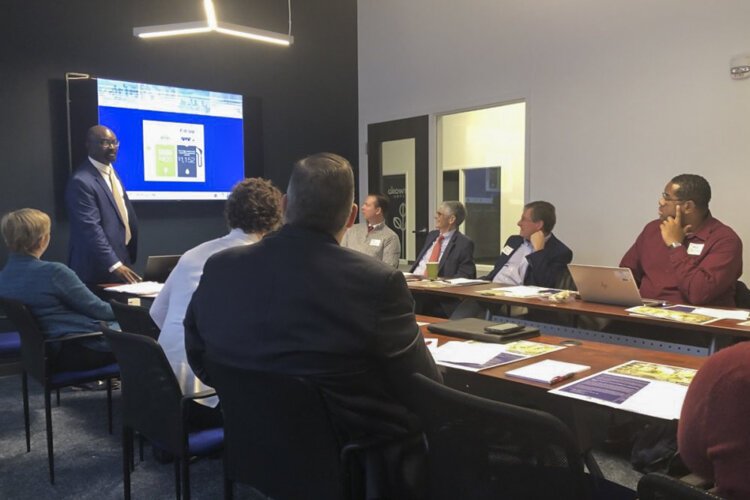The Future is Now: Urban Land Institute to host seminar on what cities will look like after COVID-19
A post-COVID-19 future is on everyone's mind. And next month's Building the 21st Century: The Future is Now virtual symposium, hosted Tuesday, March 2 and Wednesday, March 3 by the Urban Land Institute's (ULI) Cleveland chapter, is no exception.
With near-universal work-from-home orders fusing the work-life balance and heavily impacting the real estate industry, cities should brace for unprecedented vacancies in downtown office buildings, says symposium keynote speaker, Ben Hammersley. A British ex-pat, journalist, technologist, and futurist living in New York City, Hammersley spoke by phone while walking through his central Brooklyn neighborhood about how those vacancies will reshape cities.
“The CEOs I'm speaking to almost universally are closing offices,” says Hammersley. “They're going to be working from home for another nine months. You do that for 18 months and that has a knock-on effect on dry cleaners, restaurants, and services. It radically changes cities.”
Cities need to respond by focusing on what cities do best, he says, and that is moving people and their ideas—not just capital—from place to place. Hammersley says commercial real estate brokers and city hall staffs may not have a choice in such a heavy lift.

“I'm walking around the city and seeing a lot of dark windows,” he says. “Bankruptcies are going to happen. I've spoken to so many companies who say, ‘we might have a meeting, but we could rent space,’ like a restaurant.”
Hammersley's answer is to convert commercial spaces to residential properties—a prospect that has turned even weak market cities like Cleveland into growing residential neighborhoods.
Hammersley says he also likes what he’s seeing with city halls loosening regulations on sidewalk dining and converting street space to parklets and bike lanes, which he says act as a type of public space.
All are markers of the evolution of cities because they attract a more diverse population like families.
“You can make these into mixed-use and fill them with home businesses and restaurants and schools and gyms,” he says. “Why could a public school not be on top of the 40th floor? Suddenly, you have a vibrant neighborhood.”
The ULI conference has partnered with the City of Cleveland and invited other well-known speakers to talk about expansive, economically inclusive, and tech-infused ideas for mobility.
“We've really put together a very diverse panel of speakers, from all over,” says Melanie Kortyka, ULI Cleveland district council manager. “Like the last time [in 2016], we want to get everyone in the room and figure out how to make an impact.”
Speakers leading break-out sessions are: Deborah Lam, founding executive director of the Atlanta-based Partnership for Inclusive Innovation, will lead a session on technology; Tewanna Black, founder and CEO of the St. Paul, Minnesota-based Center for Economic Inclusion will lead a session on inclusive economic development; and Gabe Klein, founding partner in the Washington, D.C. Cityfi office, will lead a session on mobility.
While this year’s symposium is a virtual event, ULI Cleveland board chair and CBRE, Inc. senior associate Steve Ross recalls the excitement generated from the 2016 Building the 21st century symposium. A full conference room at the Global Innovation Center heard keynote speaker Roxanne Qualls, the former mayor of Cincinnati, talk about that city's form-based code—which led to a serious discussion and some updates in Cleveland's regulations such as a pedestrian overlay district.
“We're hoping for the same result,” Ross says. “We don't just want to have an event where people talk. We're hoping for more action and execution after the symposium.”
ULI’s The Future is Now symposium runs Tuesday, March 2 and Wednesday, March 3. Early registration is already underway and runs through this Friday, Feb. 19. Early tickets range from $30 for student ULI members ($50 for nonmembers); $60 for nonprofit and academic ULI members ($90 for nonmembers); and $80 for private ULI members ($115 for nonmembers), General pricing begins on Saturday, Feb. 20.



